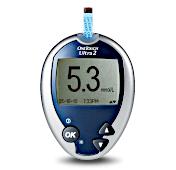How to Stamp Out Stress

Stress can affect blood glucose levels. Learn ways to cope so that you can manage your diabetes and enjoy life.
There are so many things to think about when you live with diabetes. It requires careful attention, day after day. This constant monitoring can take a toll and leave you feeling stressed out. It can also affect your blood glucose, so managing stress is important.
How stress can affect your blood glucose
There are two types of stress – physical (injury or illness) and mental (including “everyday” things). Both trigger the body’s “fight or flight response,” which can dramatically affect blood glucose levels. Just like food and exercise, stress is a factor you need to consider when monitoring your glucose. You should frequently test your blood glucose during periods of stress – so you can see how your body responds to it and make any adjustments.
Coping with stress
A good place to start is to identify your triggers. Is there something you’ve noticed that particularly stresses you out? Work, money, or something else? Knowing your triggers is a good first step towards finding ways to manage stress. Having a list of coping techniques on hand can also help you manage stress when it hits you. Here are a few strategies:
- Get active. Exercise benefits both your body and your mind. Even a small amount of physical activity can boost your energy and mood.
- Breathe deeply, stretch, or meditate. Activities that combine gentle movement with deep breathing, like yoga or Tai Chi, can help to ease stress. Meditation is another helpful way to find calmness. There are many resources available to help you get started. Your healthcare team can point you in the right direction.
- Listen to music. Studies have shown that music can increase feelings of relaxation or calmness. Find your favourite tune that puts you in the right mood.
- Avoid anxiety eating. Many people turn to food as comfort. But it’s not an effective strategy to handle stress, especially if you have diabetes. Next time you reach for a cookie, reach for your shoes instead and take a quick walk.
- Have a plan to keep your glucose in check. It’s important to test your blood glucose regularly. Stay ahead of fluctuating levels by knowing how stress affects your blood glucose levels.
Want some simple tips to help stay positive?
Reference:
Diabetes Canada. (2018). Steps to Stress Management. Retrieved March 18, 2021, from https://guidelines.diabetes.ca/docs/resources/steps-to-stress-management.pdf.
Related articles
CA-OTB-2100026













